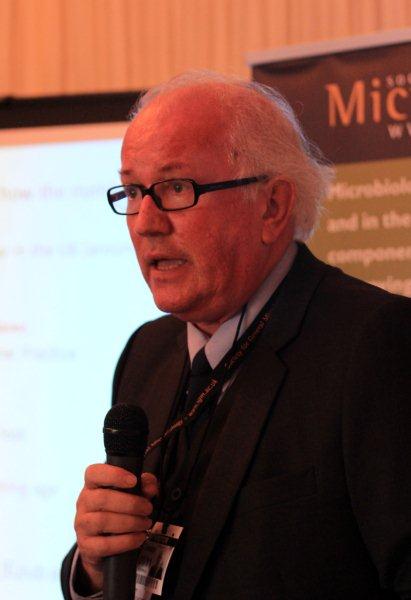PROFESSOR Tom Humphrey told around 100 of the UK’s leading policy makers that chicken welfare must be improved if efforts to combat a dangerous and often hidden disease are to prove successful.
Campylobacter is found in 80% of the chicken currently on sale at retail, and can cause diarrhoea, fever, cramps and pain if transferred to humans.
Like the more widely known norovirus, it is an infectious intestinal disease and, according to the Health Protection Agency, the number of cases in the UK per year has doubled since 1989.
There were more than 70,000 people with confirmed Campylobacter infections in 2010, compared to around 30,000 20 years ago.
And Professor Humphrey has uncovered compelling research that indicates birds produced in highly intensive systems are far more likely to carry the disease.
He was invited to speak on the subject at the House of Lords by the Society of General Microbiology (SGM), as one of four academics chosen to launch its position on Food Security and Safety.
Professor Humphrey said: “It was a success. I certainly think that I was able to plant the idea that the University is a major centre with regard to animal disease research.”
The audience was made up of members of both the House of Lords and the House of Commons, as well as representatives from the Department for Environment, Food and Rural Affairs (DEFRA), the Biotechnology and Biological Sciences Research Council (BBSRC) and other research institutes.
Professor Humphrey, also Science Director at the University-based National Centre for Zoonosis Research (NCZR), said: “What they were hearing from me was how and why we handle chickens on farms, particularly the intensive systems we use, and how those systems can often produce those things that make chickens dangerous. Their muscle and liver tissues are often found positive for campylobacter.
“I think they liked the fact we were tackling a new area and looking at the interface between animal welfare and endemic zoonotic disease.
“The message is that a happy animal is a safe animal. The trouble is that flows contrary to the wish for chickens to be very cheap.”
Professor Humphrey, who was making his second public appearance at Westminster, is hopeful the information will inform future regulation, particularly that currently being considered in response to new ‘superfarm’ applications.
He added: “It allowed decision makers to know what we are doing, and I made a big play about our efforts to engage with industry. It also helps to cement in 100 more people the fact that the University is a place where important work is done.”
